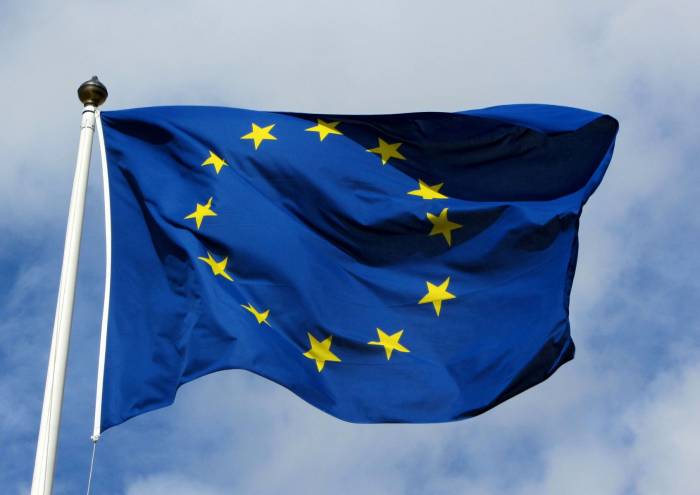Calls for Europe to strengthen its “strategic sovereignty” often imply that a more integrated European Union should become the third pillar of a “G3” world alongside the United States and China. But if the EU tries to become a pure power player in a transactional game of realpolitik, Europe’s soft power will weaken.
With the main European Union institutions preparing for a change of leadership this autumn, now is a good time to reflect on the EU’s priorities for the coming years.
The EU’s new top team is all but confirmed. Ursula von der Leyen, the former German defense minister, will be the next president of the European Commission, while Christine Lagarde, the outgoing managing director of the International Monetary Fund, will take over at the European Central Bank. Belgian Prime Minister Charles Michel will be the next president of the European Council, and Spanish Foreign Minister Josep Borrell is poised to become the EU’s new High Representative of the Union for Foreign Affairs and Security Policy.
Several commentators say the EU’s new leaders should seek to strengthen Europe’s “strategic sovereignty” through greater pooling of member states’ resources and much closer policy coordination. This is certainly much needed, not least on eurozone matters. But calls for increased strategic sovereignty often imply that a more integrated EU should become the third pillar of a “G3” world alongside the United States and China. And that is insufficient.
The structure of global power in 2019 is very different from what it was even a few years ago. We now live in a G2 world, in which China is rapidly catching up to the US on most measures of power and influence. Although China is still far behind the US in military terms, its GDP is now larger than America’s (on a purchasing-power-parity basis). Moreover, China has first-class armed forces, produces far more science, engineering, and medicine graduates than the US, boasts the world’s four largest banks, and has become a leading global technology player.
Clearly, no other country even comes close to rivaling China and the US. But, collectively, EU member states – even without the United Kingdom – would constitute a power of similar magnitude. By bolstering its strategic sovereignty, therefore, Europe could make such a G3 world a reality. A stronger and more unified Europe, the argument goes, could then compete with the US and China in most domains – including by “weaponizing” its economic resources to further its geostrategic objectives.
Yet European leaders tempted by the prospect of a G3 world must address two related concerns. First, it is unclear how the EU will achieve the necessary level of integration when most important decisions in the bloc still require unanimity among member states. Under the terms of the EU’s Lisbon Treaty, significant further integration would require either unanimous agreement on the specifics, or their approval by qualified majority voting (QMV). But the use of QMV on such important issues would itself require unanimity or treaty change, which looks impossible in the near future.
The only way around this problem may be if a core group of member states is willing to bypass the Lisbon Treaty and use intergovernmental treaties in areas where national vetoes or gridlock prevent unanimity. This course of action should be a last resort, but it should nonetheless be on the table – as it was during the eurozone crisis with the Fiscal Stability Treaty, which was signed by all EU members except the Czech Republic and the UK.
Second, the EU should not aim for a world of constant G3 geostrategic rivalry, but rather one that upholds the values enshrined in the Universal Declaration of Human Rights and the Sustainable Development Goals. Europe should use its hard and soft power to cooperate with all actors seeking to promote a rules-based global order, in areas including trade and competition, climate, the governance of digital technologies, gene editing, arms control, and the pursuit of the SDGs. Whenever possible, the EU should try to amplify its policies through multilateral institutions.
Many of Europe’s global allies hope and expect that the EU’s new leaders will champion such a course; moreover, Europe benefits from the soft power that such sentiments generate. If, on the other hand, the EU’s new strategy makes it sound as if Europe just wants to become like China or a “Trumpian” America – that is, a pure power player in a transactional game of realpolitik – then Europe’s soft power will weaken.
This point is related to the possible need for majority voting and even intergovernmental treaties to enhance cooperation within the EU. If the bloc is unable to enforce its values within its own borders – as is currently the case, for example, with Hungary – then it will not be able to promote them convincingly on the world stage.
Europe must therefore lead by example and project its values everywhere, including in its dealings with the US and China. The hope that Europe may soon once again jointly champion these values with the US is realistic, and should be kept alive. And although differences with China will persist, social and political forces seeking greater freedom and multilateralism are bound to emerge in that country at some point.
The EU’s new leaders must chart an ambitious and credible way forward for the bloc. They should seek to build a stronger and more integrated Europe, one that is not held back by the lowest common denominator and is able to stand up for itself while working toward a peaceful multilateral world order. Such a global role could make the EU a new and very different type of superpower.
Kemal Dervish, former Minister of Economic Affairs of Turkey and former Administrator for the United Nations Development Program (UNDP), is Senior Fellow at the Brookings Institution.
Read the original article on project-syndicate.org.
More about:
















































